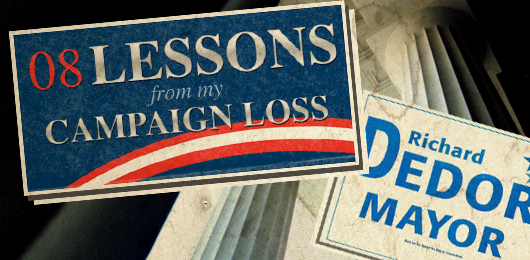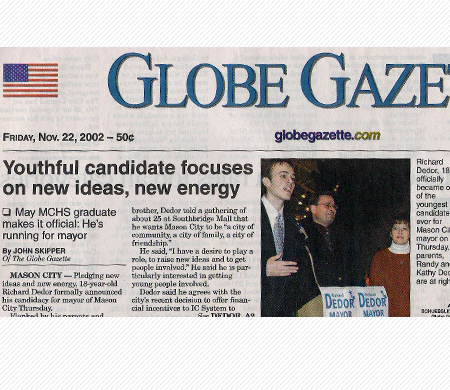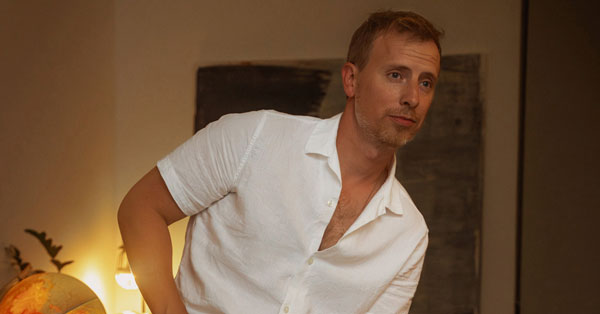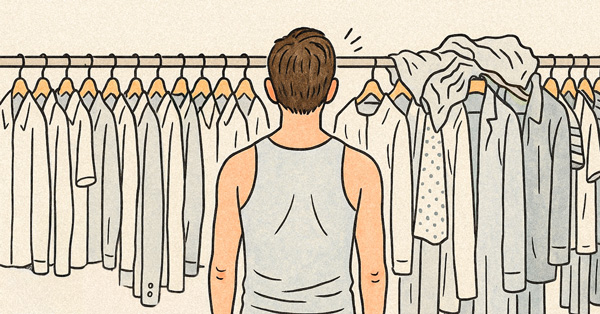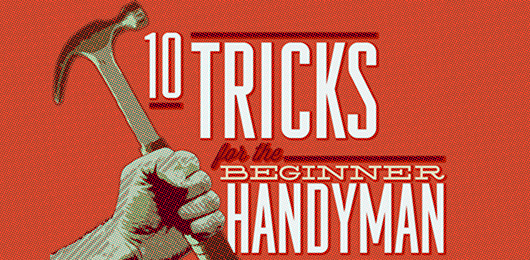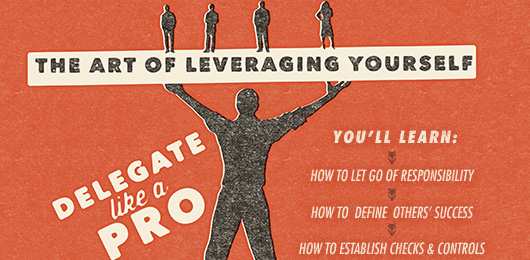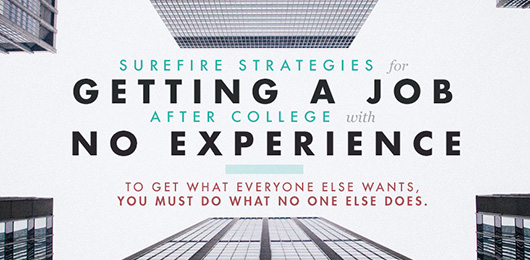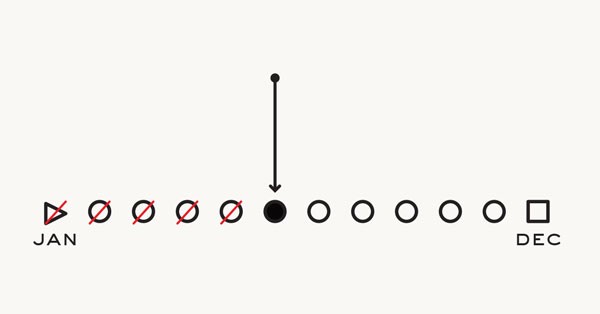When I announced I was running for mayor of Mason City, Iowa, in November 2002 (just five months after graduating from high school), I knew I was going to win. Mason City was the ninth largest in the state at the time, with nearly 30,000 residents. But people in politics knew who I was and were excited for my candidacy.
I was leading the race headlines and in the early days of internet campaigning, the launch of my campaign site made the news. I released my economic plan via my website. Only 18 years old when I announced and 19 when the vote totals told me I was not the winner — I was heartbroken.
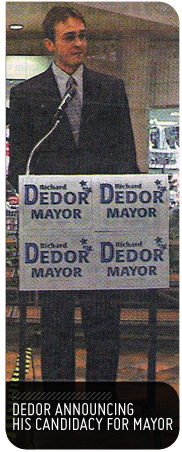
1. Be willing to say, “I don’t know”
Nothing is worse in life than making an ass of yourself. During one of the debates of the campaign, the editorial board of our local paper asked about one of the local non-profits which was rumored to be in financial trouble. The question was about the taxpayers needing to potentially step in and save the organization. I responded as though I knew about the situation which while, I didn’t put my foot in my mouth, I said more than I should have. I could have saved face and just said, “I don’t know.”
2. Be prepared for any situation
Campaigns, just like life, can often bring crazy events and moments. In a campaign, those crazy unscripted moments can completely destroy a candidacy.
Mine wasn’t public but I received a phone call late on a Friday night. There was a guy on the other end of the line who wanted to voice his opinion on the issues. While this isn’t a problem, two things were. First, he didn’t even live in our community. Second, he talked to me for over two hours. I handled it very cordially, but next time, I will end the call much faster.
3. Plan, then spend every penny like your life depended on it
For my small local campaign, I raised just under $1,000. For an 18 year old, that was pretty good in my opinion. I ended the campaign with just under $70 in the bank.
While I was proud I managed the money, I should have planned before the launch of the campaign what our goals were and where and when the money would be spent.
It’s the same with life: when you have a vacation account, you get to take the vacation when you reach a certain savings level.
4. The race is long – very long
Just like most goals, it can take a long time to reach the destination. Even though this campaign was shorter than most, it was long. By the end, win or lose, I was ready for it to be over.
Pace yourself. Keep everything in front of you. Anything worth chasing in life will take time. Just like me wanting to run a marathon, it will take me longer than most people to train for it, but it will be worth it in the end.
5. Try something new
For the campaign it was me who was new. I was a young candidate with new ideas. I was fresh. Always come with fresh ideas, fresh attitudes and innovative ways to tackling a problem.
When you do, people listen. It’s not all about “change” it’s about vision and believing in yourself.
6. Do what has always worked
Aside from trying new tactics, it’s also about doing what has worked. One thing I didn’t do during the campaign was phone-bank. We didn’t make a single call. Part of the reason was financial. I had also never run a campaign and didn’t even know how to set one up. For us, we did yard signs, coffees and normal media pushes. It worked, but not enough to win.
7. Be willing to lose
I lost this campaign as a 19 year old. Going in, I thought I was going to win. I didn’t expect to go up against the people that ended up joining the race. By putting myself out there, I was willing to lose the race. But one thing I wasn’t willing to do was compromise my vision for the community. That is where understanding that you could lose is so powerful. When you understand losing happens, winning becomes easier.
8. Win!
At the end of the day, the goal of any campaign is to win. Win at all costs. Go to the mattresses! The votes didn’t give me the win (although I placed third among ten candidates). When I spoke to my supporters after the final totals were known, I said, “The votes don’t show that we won, but I believe we did. We got people to care. We got people to talk. We got people involved in the process and for that, we are all winners.” A bit idealistic, but true.
So I lost, so what, at least I ran. I’m a stronger person for it. When it comes to living a life of dreams, you have to take action. You have to be a candidate for your best life. You have to try new things and be dedicated and run a long, steady race. But no matter what you do, be willing to lose so that you can win.



